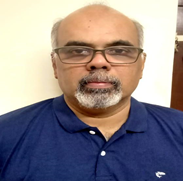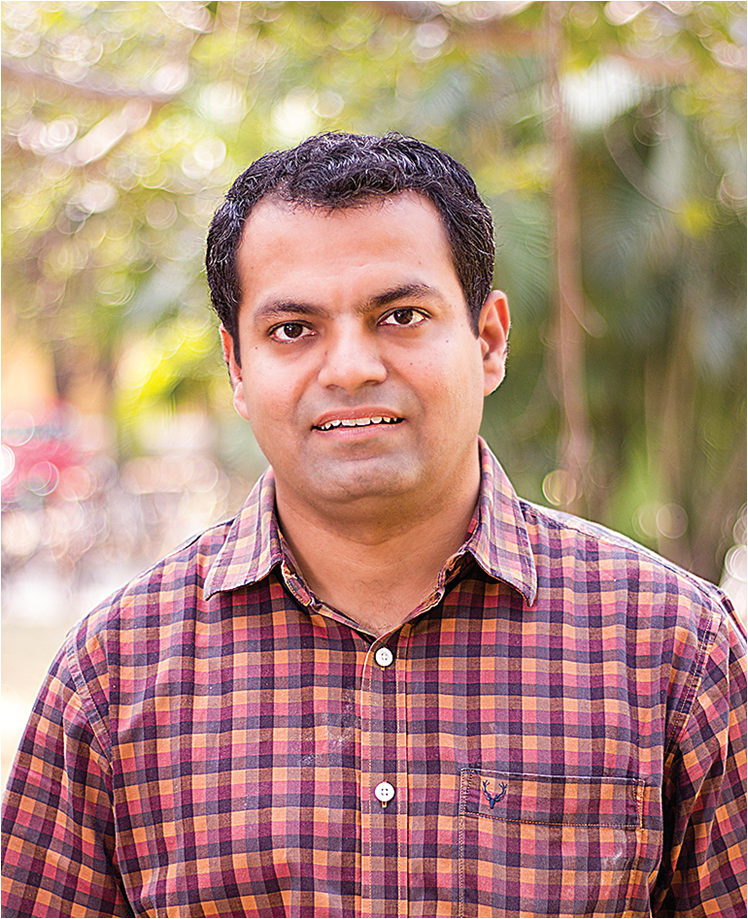Indian Institute of Technology Madras
Students graduating with interdisciplinary Dual Degree (ID-DD) program in Advanced Materials and Nanotechnology:
Will be equipped with an understanding of the fundamental science behind advanced materials
Will be trained with the practical tools and techniques of fabrication (materials and devices).
Program Outcomes
The program aims to prepare students for placements in national labs as well as private R&D labs and industries. The program also aims to prepare students for academic research in leading universities in India and Abroad.
Program Offers
The ID-DD programme in Advanced Materials and Nanotechnology designed with inputs from Engineering and Science disciplines. Departments currently offering courses towards this program are Applied Mechanics, Chemical, Chemistry, Electrical, Materials and Metallurgy, Physics. It is coordinated by the Department of Physics.
Enrollment
A B. Tech student or a Dual Degree student of IIT Madras in any discipline (except biosciences) is eligible to upgrade/opt for this programme provided the student has a CGPA of 8.0 or above up to 5th semester. Total number of seats will be fixed at 25 and allocation of dual degree specialization and award of the degree will be governed by the rules of the Institute.
Curriculum
The Curriculum is designed with the understanding that the modern field of Advanced materials and Nanotechnology is based on the exchange of ideas between sciences and Engineering branches.
Synthesizing novel materials involves a good knowledge of chemistry, and the physical properties exhibited by these novel materials are studied by the Material Scientist (cutting across Physics, Chemistry and Materials departments). Application of these materials for wider usage needs the involvement of Engineers. Computational material science forms an integral part of the field of advanced materials both in terms of the design and understanding of the physics involved. Application of these materials encompasses a wide range of fields: Energy generation and storage materials, batteries, micro-electronic devices, magnetic materials, water purification, high strength materials, sustainable plastics, sensors, etc.
The curriculum is expected to facilitate both short/long term internships with private and public companies having strong research and development wings. These internships can lead to final-year projects towards the Dual Degree programme. These internships and projects are expected to enhance industry-academia collaboration for development of novel engineering products based on advanced materials and nano systems.
The list of courses to be offered for students opting for DD in Advanced Materials and Nano Technology will have both core courses and electives. The students are allowed to choose four electives out of a total of 38 electives cutting across different disciplines. There will be four core courses that include a course on the Science and Technology of Solid State, two courses on nanomaterials and nanotechnology and a Laboratory course aimed at giving hands-on experience on Advanced materials and nano systems (36 credits of DD core course). Those students who opt for the Dual Degree program will do the courses from their 7th Semester as prescribed below.
Interdisciplinary DD in Advanced Materials and Nano Technology -course curriculum
Course No | Course Name | L | T | E | P | O | C | |
Semester 7 | ||||||||
1 | PH5011 | Core 1: Science and Technology of Solid State | 3 | 1 | 0 | 0 | 6 | 10 |
2 | PH6022 | Core 2: Introduction to Nanoscience | 3 | 0 | 0 | 0 | 6 | 9 |
|
| Total credits | 6 | 1 | 0 | 0 | 12 | 19 |
| Semester 8 |
|
|
|
|
|
|
|
1 | PH6011 | Core 3: Nano materials and nanotechnology | 3 | 0 | 0 | 0 | 6 | 9 |
2 | Elective 1 | To be taken from the list of Electives mentioned | 3 | 0 | 0 | 0 | 6 | 9 |
3 | Elective 2 | To be taken from the list of Electives mentioned | 3 | 0 | 0 | 0 | 6 | 9 |
4 | PH6015 | Core 4: Advanced Materials and Nanotechnology Lab | 0 | 0 | 0 | 6 | 2 | 8 |
|
| Total Credits | 9 | 0 | 0 | 6 | 20 | 35 |
| Semester 9 |
|
|
|
|
|
|
|
1 | PH5361 | Project-I (Summer)/Summer internship | 0 | 0 | 0 | 0 | 25 | 25 |
2 | Elective 3 | To be taken from the list of Electives mentioned | 3 | 0 | 0 | 0 | 6 | 9 |
3 | Elective 4 | To be taken from the list of Electives mentioned | 3 | 0 | 0 | 0 | 6 | 9 |
4 | PH5362 | Project II (In the institute) | 0 | 0 | 0 | 0 | 20 | 20 |
|
| Total Credits | 6 | 0 | 0 | 0 | 57 | 63 |
| Semester 10 |
|
|
|
|
|
|
|
1 | PH5363 | Project III (in the Institute) | 0 | 0 | 0 | 0 | 40 | 40 |
|
| Total Credits | 0 | 0 | 0 | 0 | 40 | 40 |
ELECTIVE COURSES
students can choose from 38 electives spread across participating departments.
Sl. No | Course No | Course Name | L | T | E | P | O | C |
1 | PH5310 | Synthesis and Characterization of Functional Materials | 3 | 0 | 0 | 0 | 6 | 9 |
2 | PH5320 | Techniques of Characterization of Materials and Physical Measurements | 3 | 0 | 0 | 0 | 6 | 9 |
3 | PH5730 | Methods of Computational Physics | 3 | 0 | 0 | 0 | 6 | 9 |
4 | PH5670 | Physics and Technology of Thin Films | 3 | 0 | 0 | 0 | 6 | 9 |
5 | PH5690 | Applied Magnetics | 3 | 0 | 0 | 0 | 6 | 9 |
6 | PH5600 | Physics at Low Temperatures | 3 | 0 | 0 | 0 | 6 | 9 |
7 | PH5680 | Superconductivity and applications | 3 | 0 | 0 | 0 | 6 | 9 |
8 | PH6013 | Functional materials, Sensors and Transducers | 3 | 0 | 0 | 0 | 6 | 9 |
9 | PH5813 | Principles of nanophotonics | 3 | 0 | 0 | 0 | 6 | 9 |
10 | PH5462 | Magnetism in solids | 3 | 0 | 0 | 0 | 6 | 9 |
11 | PH6012 | Semiconductor Physics and devices | 3 | 0 | 0 | 0 | 6 | 9 |
12 | PH5660 | Non-linear Optical Processes & Devices | 3 | 0 | 0 | 0 | 6 | 9 |
13 | EE5347 | Electronic and Photonic nanoscale devices | 3 | 0 | 0 | 0 | 6 | 9 |
14 | EE6500 | Integrated Optoelectronics Devices and Circuits | 3 | 1 | 0 | 0 | 6 | 10 |
15 | ID6102 | Principles and techniques of Transmission Electron Microscopy | 3 | 0 | 0 | 0 | 6 | 9 |
16 | ID5010 | Advanced materials and processing | 3 | 0 | 0 | 0 | 6 | 9 |
17 | ID6050 | Chemical Physics of Modern Technical Ceramics | 3 | 0 | 0 | 0 | 6 | 9 |
18 | MM5210 | X-ray diffraction techniques | 3 | 0 | 0 | 0 | 6 | 9 |
19 | MM5680 | Smart Materials | 3 | 0 | 0 | 0 | 6 | 9 |
20 | MM5700 | Topics in nanomaterials | 3 | 0 | 0 | 0 | 6 | 9 |
21 | MM5017 | Electronic materials devices and Fabrication | 3 | 0 | 0 | 0 | 6 | 9 |
22 | ME7023 | Foundations of Computational Materials Modeling | 3 | 0 | 0 | 0 | 6 | 9 |
23 | CY6380 | A Chemical Approach to Nanomaterials | 3 | 0 | 0 | 0 | 6 | 9 |
24 | CH5012 | Modeling and Simulation of Particulate Processes | 3 | 0 | 0 | 0 | 6 | 9 |
25 | CH5021 | Molecular Simulation of Soft Matter | 3 | 0 | 0 | 0 | 6 | 9 |
26 | CH5270 | Polymers for Devices | 3 | 0 | 0 | 0 | 6 | 9 |
27 | CY6118 | Experimental methods in chemistry | 3 | 0 | 0 | 0 | 6 | 9 |
28 | ID6030 | Introduction to nano science and nanotechnology | 3 | 0 | 0 | 0 | 6 | 9 |
29 | EE5343 | Solar Cell Device Physics and Materials Technology | 3 | 0 | 0 | 0 | 6 | 9 |
30 | EE5346 | Introduction to plastic electronic | 3 | 0 | 0 | 0 | 6 | 9 |
31 | EE5340 | MicroElectroMechanical Systems | 3 | 0 | 0 | 0 | 6 | 9 |
32 | EE5312 | VLSI Technology | 3 | 1 | 0 | 0 | 6 | 10 |
33 | CH5190 | Introduction to Macromolecules | 3 | 0 | 0 | 0 | 6 | 9 |
34 | MM5041 | Medical Materials | 3 | 0 | 0 | 0 | 6 | 9 |
35 | MM5460 | Physical Ceramics | 3 | 0 | 0 | 0 | 6 | 9 |
36 | AM5470 | Analysis & Design of Smart Material Structure | 3 | 0 | 0 | 0 | 6 | 9 |
37 | AM6190 | Cellular structures and mechanics | 3 | 0 | 0 | 0 | 6 | 9 |
38 | AM6512 | Application of Molecular Dynamics | 3 | 0 | 0 | 0 | 6 | 9 |
Project
The student can pursue the final-year project in an area related to the scope of the program with any faculty member in the participating Departments.


Student Placements:
The first (2020) batch of the program had 2 students who are pursuing their careers as PhD student in Material Science Dept. at Stanford University and as employee at Citi-group, respectively.
Coordinating Faculty

PN Santhosh, PH (Program Coordinator)

Manu Jaiswal, PH (Physics Dept. representative)
Contact Faculty

PN Santhosh
santhosh@iitm.ac.in

